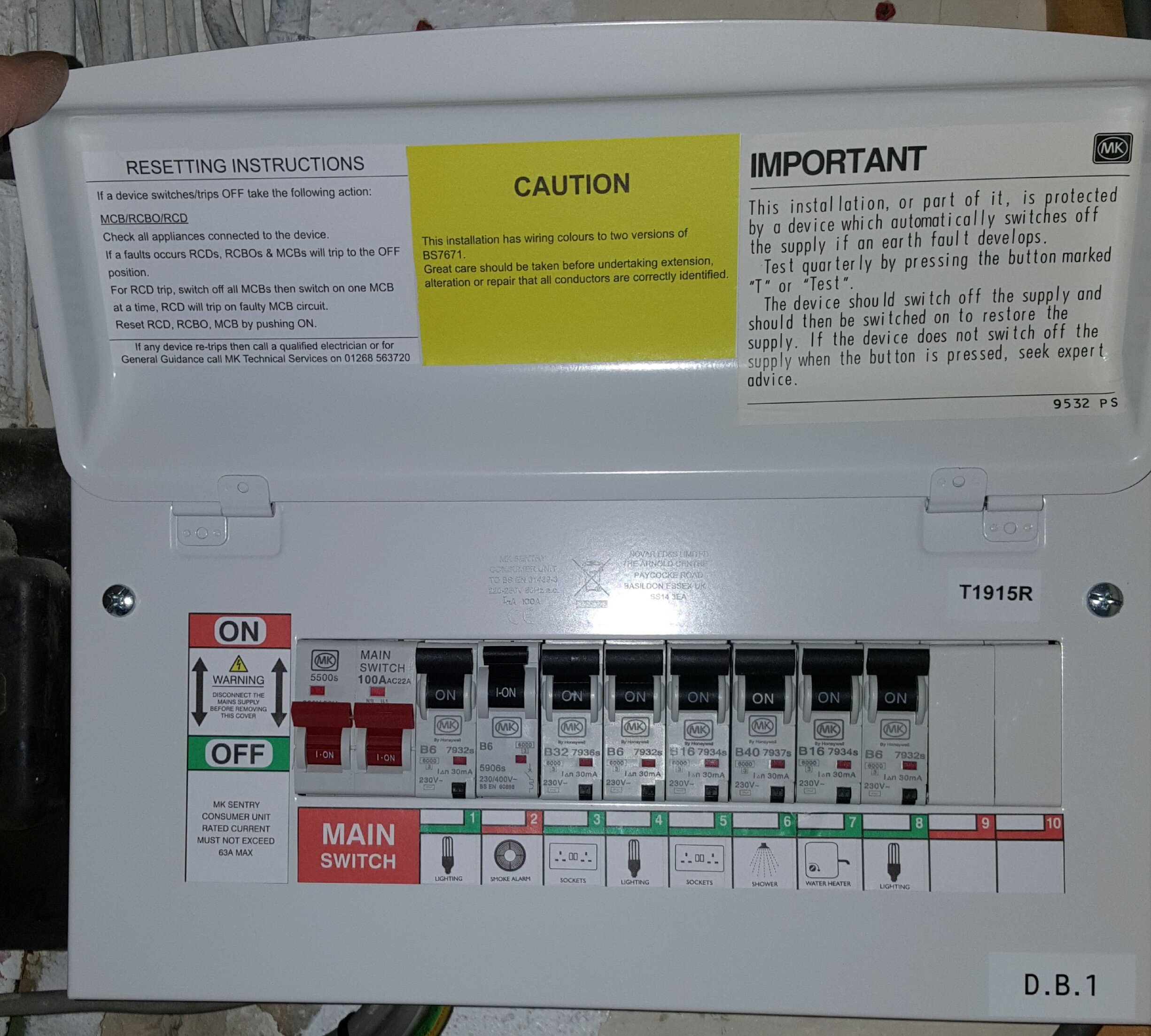The Function of Consumer Systems in Reliable Energy Management Solution
Customer devices are integral to effective power management systems, functioning as the key distribution factors for electrical power within frameworks. By including circuit breakers, they secure circuits from potential overloads, thus keeping safety and protecting against substantial failures. The development of smart modern technologies has actually further improved their capability, enabling real-time data monitoring and nuanced power consumption analysis. This integration not just maximizes power use but also promotes the incorporation of eco-friendly energy resources, thus promoting sustainable practices. Exactly how, after that, do these improvements equate to substantial benefits in everyday energy administration?
Comprehending Consumer Units
-1796-p.jpg?v=293b7e83-9afe-44ed-b26f-caca2c71d6f2)
Recognizing the function of customer systems begins with acknowledging their necessary function in safeguarding electrical systems. By separating faults within details circuits, customer devices protect against widespread outages and possible fire dangers. This seclusion is accomplished through the use of breaker that journey or integrates that strike when a fault is discovered, therefore removing the electrical circulation to the influenced circuit.
Moreover, customer units facilitate the orderly distribution of power, enhancing the performance of power usage. They enable the methodical management of electric lots, which can be specifically important in business and industrial setups where need can rise and fall significantly. Effectively conserved customer devices add to the durability of electric systems and help in minimizing downtime triggered by electric failings, ultimately sustaining the seamless procedure of energy-dependent facilities.
Smart Technologies Combination

An essential benefit of clever consumer systems is their capacity to leverage progressed formulas and artificial intelligence for anticipating analytics. This enables for preemptive changes based on use patterns, weather report, and various other variables, considerably raising general performance. Clever consumer units assist in need reaction programs, where power use can be dynamically readjusted throughout top durations to maintain the grid and reduce expenses.
The integration of sustainable power sources, such as solar and wind, is also streamlined with smart customer units. By wisely taking care of the intermittency of these sources, these units make sure a reputable and well balanced power supply. In addition, clever customer systems boost individual involvement by offering in-depth insights and push-button control capabilities with mobile applications, fostering an extra aggressive strategy to power conservation and sustainability.
Tracking Energy Usage
Structure on the abilities of wise innovations combination, keeping track of power consumption becomes a crucial emphasis within energy administration systems. By leveraging sophisticated metering framework (AMI), real-time information on energy usage can be collected at granular levels, giving important insights into usage patterns and peak need periods.
Smart meters and Web of Points (IoT) gadgets play a critical function in this surveillance procedure. These devices can track energy use in real-time, transmitting data to central systems for analysis.
The integration of these modern technologies not only encourages customers with comprehensive details concerning their energy usage however additionally sustains energy companies page in taking care of load distribution a lot more effectively. Eventually, continual and accurate tracking is see this here indispensable for accomplishing energy effectiveness, expense savings, and sustainability goals within energy management systems.
Optimizing Appliance Use

One efficient technique involves identifying height and off-peak hours to move energy-intensive activities, such as washing or dishwashing, to times when power need is reduced. This not only decreases pressure on the grid but likewise exploits on reduced power tolls. Furthermore, integrating maker knowing algorithms enables for anticipating upkeep, making sure appliances run at optimum effectiveness and lengthening their lifespan.
Power administration systems can likewise integrate user-specific preferences and habits to customize home appliance usage timetables. Clever lighting systems can change illumination based on tenancy and all-natural light schedule, while A/c systems can keep convenience degrees without excessive power use.
Promoting Sustainability
Promoting sustainability within power administration systems includes not just enhancing effectiveness yet likewise promoting ecologically liable practices. Consumer systems are essential to this procedure, as they give real-time data and control devices that make it possible for users to keep track of and decrease their energy intake. By leveraging innovative modern technologies, consumer units can identify energy-saving chances and help with the combination of eco-friendly energy resources like solar and wind power.
One essential aspect of advertising sustainability is educating customers on the benefits of liable power use. With detailed insights provided by customer devices, individuals can make enlightened decisions that check reduce their carbon impact. For example, these devices can recommend ideal times for operating high-energy appliances based upon grid demand and eco-friendly power availability, thereby lowering dependence on fossil fuels.
In addition, consumer units support the fostering of smart grid technologies, which improve the total efficiency and reliability of energy circulation. By enabling two-way communication between consumers and utility suppliers, these systems can dynamically adapt to power needs, decreasing waste and promoting making use of sustainable energy practices.
Conclusion
Customer units, as essential elements of power monitoring systems, considerably boost electric security and effectiveness within buildings through circuit protection and smart technology integration. Real-time data monitoring and evaluation facilitated by these systems enhance power consumption and appliance usage. In addition, the unification of sustainable power sources advertises lasting practices, contributing to minimized general power intake and reduced carbon impacts. Customer units play a crucial duty in progressing both energy performance and environmental sustainability.
Advancements in smart modern technologies have transformed the capabilities of energy administration systems, especially through the assimilation of smart customer systems.Structure on the abilities of clever innovations integration, monitoring energy consumption ends up being an essential emphasis within energy management systems.Efficient appliance usage optimization is a crucial part of power management systems, intending to improve efficiency and decrease unnecessary energy intake.Consumer devices, as indispensable components of power management systems, significantly enhance electric safety and security and performance within structures through circuit security and clever modern technology integration. Additionally, the unification of sustainable power sources advertises sustainable methods, contributing to lowered total energy consumption and lower carbon impacts.